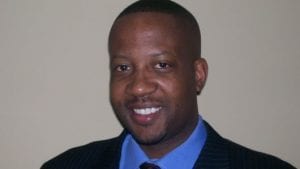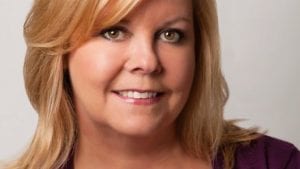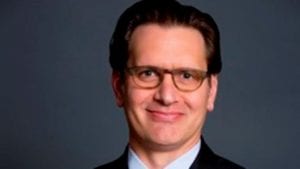How to sustain your start-up: advice from three entrepreneurs who made it
- Two in 3 new businesses fail within 10 years, according to the Bureau of Labor Statistics.
- Entrepreneurs Shawn Stafford, Nancy Lazkani and Dave Vreeland share their tips for running a successful business.
- Financial security was a key motivator for all three.
Published 11:01 AM ET Sat, 1 Dec 2018
Budding entrepreneurs beware.
Two in 3 new businesses fail within 10 years, according to data from the Bureau of Labor Statistics.
What helps the other third avoid that fate? CNBC talked to three entrepreneurs who transformed their bold ideas into multi-million dollar juggernauts. This group of business owners, all members of the Tiger 21 networking group for wealthy individuals, reflected on their careers and provided tips to help you get your start-up off the ground.
Shawn Stafford
President and chief executive of Real Estate Service Solutions Company (RESSCO) in Detroit

Shawn Stafford turned Detroit-based real estate agency RESSCO from a basement start-up into a multimillion dollar empire.
After graduating from Michigan State University in 1995, Stafford began working at Ford, where he built a career as a purchase manager, working his way up to oversee $1 billion worth of accounts and 100 employees.
Yet Stafford, 46, says his lifelong goal of becoming an entrepreneur drove him to abandon the automotive world and jump into commercial real estate — despite not having any experience in the industry.
“I was trying to find a niche business that I could get into that’s got a low barrier to entry,” Stafford said.
His dream started slowly, with the married father of one starting to flip houses in 2003 while he worked at Ford. Meanwhile, he was developing a business plan to take that side hustle full time. A year later, he left the car maker to launch Real Estate Service Solutions Company (RESSCO), a commercial real estate company.
“I was trying to find… a niche business that I could get into that’s got a low barrier to entry.” -Shawn Stafford, president and chief executive, RESSCO
Stafford says his ability to self-fund RESSCO when he first started out, combined with Detroit’s low real estate prices, let him buy inexpensive properties and sell them for a profit after renovating. The management experience gained from working at Ford gave him an advantage over other entrepreneurs, helping him to manage his business more efficiently.
Now, 15 years after Stafford started RESSCO in his basement, the company has 130 employees and 15 locations across Michigan, Ohio, and Indiana, with $50 million in revenue. RESSCO’s specialty is multifamily housing, and the company controls nearly 5,000 apartment units across the Midwest.
Nancy Lazkani
President and chief executive of Icon Media Direct in Los Angeles

Nancy Lazkani is the founder, president, and CEO of Icon Media Direct, an advertising agency that she started with $10,000 of her own money that now bills between $200 million and $300 million per year.
Lazkani’s decision to go into business for herself wasn’t made in pursuit of money or status.
“When I look at the basis for who I was, it was really about survival,” she said.
When Lazkani was growing up, her family often moved between rental properties. With very little money to go around for her and her four siblings. She was the first person in her family to attend college, although she didn’t finish. After having her first child, the single mother jumped into the workforce and immediately began seeking ways to progress up the corporate ladder.
“When I look at the basis for who I was, it was really about survival.” -Nancy Lazkani, president and chief executive, Icon Media Direct
Her first venture was an advertising agency, which she started with two partners. That ended badly but, undeterred, Lazkani jumped into her next start-up. She self-funded Icon Media Direct — a marketing firm with a focus on advertising analytics. With $10,000 in computers paid for with her American Express card. Clients from Lazkani’s first company followed her, eliminating the need to start entirely from scratch.
Icon Media Direct’s early days saw Lazkani go months without a paycheck. But now, 18 years later, she said her company bills between $200 and $300 million per year and employs 100 workers.
TIPS FROM THE ENTREPRENEURS
- Build a sound business plan. Stafford said he knows many people whose new businesses failed because they did not do enough “financial modelling” ahead of launch — and as a result could not support their companies. To avoid that mistake, before Stafford switched to selling real estate full time, he developed a business plan where he projected his revenue into the future and anticipated what financial goals he needed to achieve to keep RESSCO running.
- Understand your market. Lazkani developed a software called WebTraxx. This lets Icon Media Direct analyze how many consumers engage with different advertisements. Having a better sense of which advertisements resonate best with consumers gives her company a competitive advantage. Allowing them to target ads more accurately and invest money in different advertising strategies when necessary.
- Prepare for work-life imbalance. Dave Vreeland, co-founder of Cumberland Consulting, said entrepreneurs should anticipate that their companies will occupy almost every second of their time, especially when they first start out. Adjust your time management and understand that start-ups may require you to take time away from family and relaxation, he said.
- Hire employees with diverse viewpoints. Don’t hire “yes men” who will only tell you what they think you want to hear, Stafford said. Instead, look for employees with differing backgrounds and opinions. That leads to better ideas and communication, he said.
- Solve a problem. When surveying potential markets and industries, Vreeland said, entrepreneurs should look for something that needs improving. Then use your company to fill the void.
- Invest in your employees. Lazkani said she makes sure that the talent around her contributes to her company’s growth and success. Through initiatives like employing a leadership coach and regularly analyzing employees’ performance.
Dave Vreeland
Co-founder of Cumberland Consulting in Franklin, Tennessee

Dave Vreeland is a co-founder of Cumberland Consulting, a healthcare IT firm that specializes in helping hospitals and medical institutions maintain digital medical record archives.
Vreeland, 50, attributes much of his entrepreneurial drive to his childhood. His family always had a “degree of economic insecurity,” Vreeland said. As an adult, he thought starting his own company was the best way to achieve a worry-free life for his wife and son.
He started his career as a hospital administrator in the Midwest, before landing at Ernst & Young in Chicago. Vreeland’s job there immersed him in healthcare information technology. As E&Y was leading the health-care industry’s transition from paper medical filing to digital records.
“My business plan required everyone to move to Nashville.” -Dave Vreeland, Co-founder, Cumberland Consultinc
Having seen firsthand how much space patients records can occupy, Vreeland decided to seek a way to digitize the process entirely. That goal ultimately took shape in the form of Cumberland Consulting Group. A health-care information technology company that currently generates around $100 million in annual revenue.
“My business plan required everyone to move to Nashville.” Vreeland said — a city he calls the Silicon Valley of American health care.
Despite initial success, Vreeland and his partners nearly lost everything when the Great Recession hit. Salvation came in the form of the 2009 Health Information Technology for Economic and Clinical Health (HITECH) Act. Which provided financial incentives for hospitals to make their records digital.
Vreeland sold his stake in Cumberland in 2011 to spend more time with his wife and son. As well as take on other business opportunities
While these three entrepreneurs took different paths on the road to success, they all agree that new business owners require a sense of unyielding persistence to reach their goals. Your character makes a difference in determining whether a start-up survives.
“Everything you do and every decision you make, make it with integrity,” Lazkani said.
https://www.cnbc.com/2018/11/30/successful-entrepreneurs-share-start-up-tips.html
